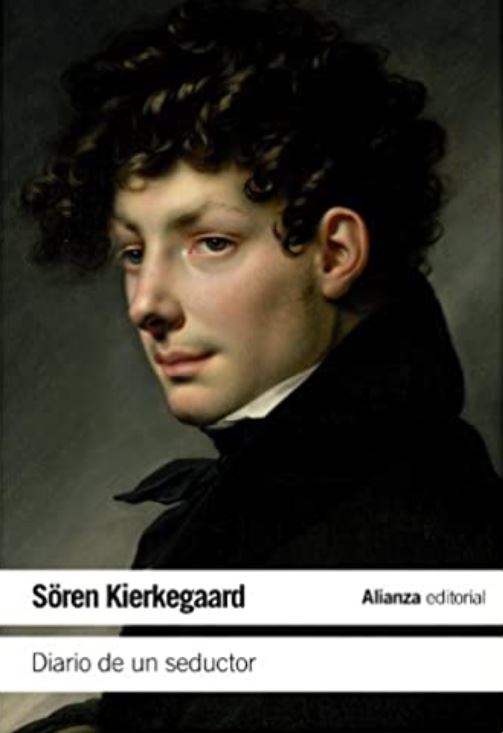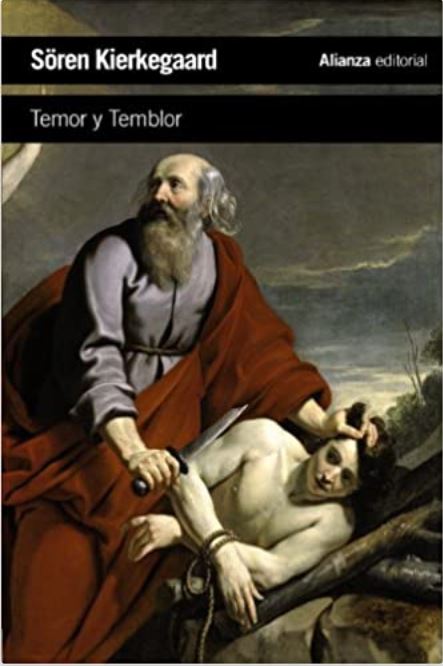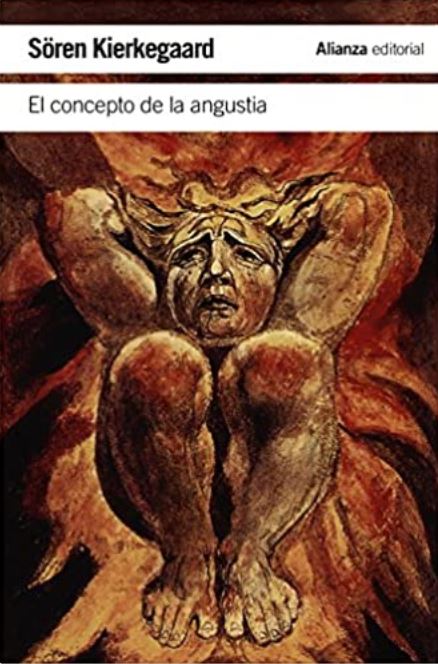Kierkegaard or when philosophy and literature come together. Because if we all quickly associate Sartre as the core character of this historical current, undoubtedly thanks to his novelistic facet, we must not forget that the issue of existentialism is eminently philosophical. And there Kierkegaard draws on that essential literature that is trying to find the most transcendental answers. Always from a novel approach, a kind of "I exist, therefore I think."
And of course, in the same way that a while ago I was comfortable with my favorite philosopher, that Nietzsche With his work to the beat of the darkest Wagner, it is now my turn to review some of the most recommended books by the Danish thinker.
Obviously, this is a dense author, one of those that you should read without any distraction so as not to end up plunged into the deepest despair by a text that seems to have suddenly changed language.
But once you let yourself go. When you manage to connect with the concepts, with the interpretations, with the conjectures and with that kind of impossible science that is philosophy in search of conviction, you will end up captured like Ulysses under the arpeggios of that disguised siren that is Kierkegaard.
Top 3 Recommended Books by Soren Kierkegaard
Diary of a seducer
Trying to prioritize the work of a philosopher as relevant as Kierkegaard has its substance. But this novel can be considered the forerunner of so many writers determined to offer in their characters those glimpses of humanity deep down to the visceral, even the psychosomatic.
And for that alone, in addition to its inherent worth, I highlight it in the first place. Behind this title with the appearance of a rose novel, there is a powerful story about the subjective fact of love, passion, and its ability to transform reality.
And of course, nothing better for a thinker of the depth of Kierkegaard than to take off with a personal lack of love from which to compose the narrative. Because everything starts from one of those true loves and their wounds.Juan and Cordelia are the lovers of this story. Juan's passion disguised as love hides all the philosophical intention of the plot, while Cordelia is relegated to that almost romantic suffering, an expression already abandoned by the new writers of the time.
Juan and his passage through the world without major questions than his most passionate needs. Juan and the drives that move him through his days. Perhaps happiness but certainly ignorance. The weight of going through the scene like nothing or trying to understand what is true beyond the stage of life.
Fear and trembling
One's own experience as a recurring argument from which to outline that philosophy of existence. Can not it be a different way. Existentialism places this being before any intention of ideal projection, condemned in its opinion to the failure of ignorance and the untestable hypothesis.
Versus Hegel and its methods, the entrenchment in the discovery of the impossible notion of the alien.Thus, under the most particular conditions and already brushed up before in Diario de un seductor, Kierkegaard writes from the bitter perception of loneliness and the will to survive from the profuse attempt to discover.
With the pride, or perhaps knowing the universal value of this work, who knows? The author himself seemed to have been very satisfied with this essay that starts from the imperishable image of Abraham about to kill his son.Religion can explain it, sublimate it as it wants, but Kierkegaard focuses on the homicidal part, on man's ability to destroy what he loves most. Faith, madness, passions, love, loneliness.
Concepts that from that moment of the Catholic imaginary known to the whole world, wonderfully entangle you in that inner universe from which an outer Universe can be dwarfed to the point of distress.The concept of anguish
Well yes, you are right. There is no doubt that from so much wondering what are we doing here? In the midst of the most absolute solitude and with the sight lost in the infinity of a black celestial dome, one ends up knowing the anguish closely.
The fact is that Kierkegaard also dared to write about her. And for him it turns out that anguish is a kind of destiny sought, a tension between the balances of reason, that derived from morality, the need to believe in God and the drives that push as directed by demons.
If the human being is eminently rational, the contradiction with his instinct marks a difficult battlefield in which that anguish ends up waking up out of necessity.The most fascinating thing about this shocking account of existentialism as the most disturbing dichotomy is, curiously, the literary part, the beauty of the exhibition, the immortality of concepts and images paradoxically around the anguish of living.



1 comment on «Here. The 3 best books by Soren Kierkegaard»